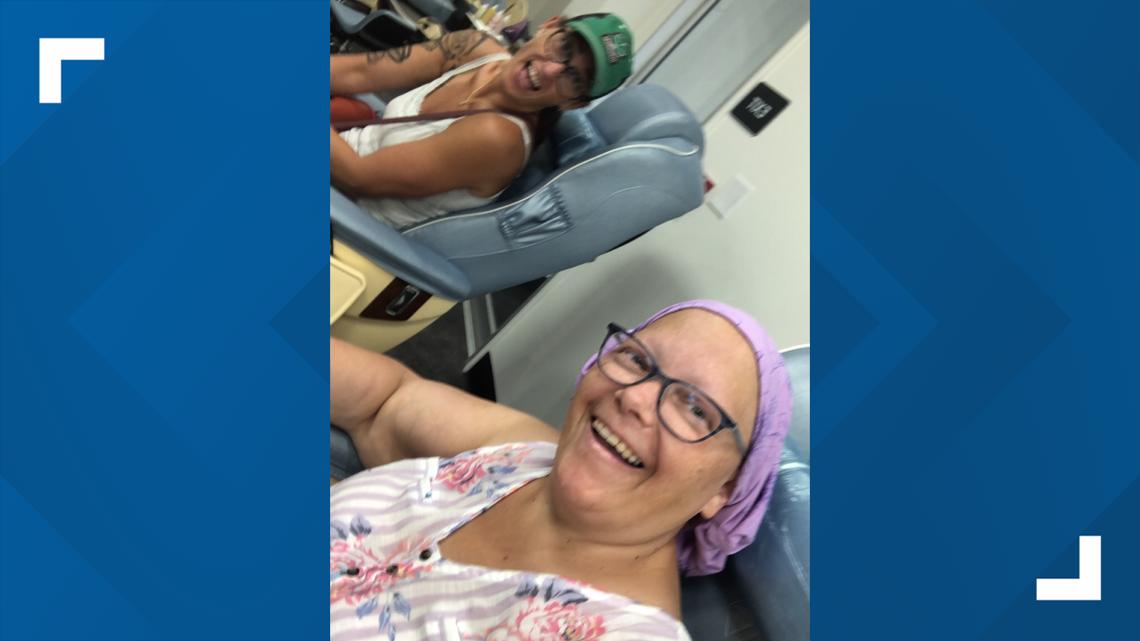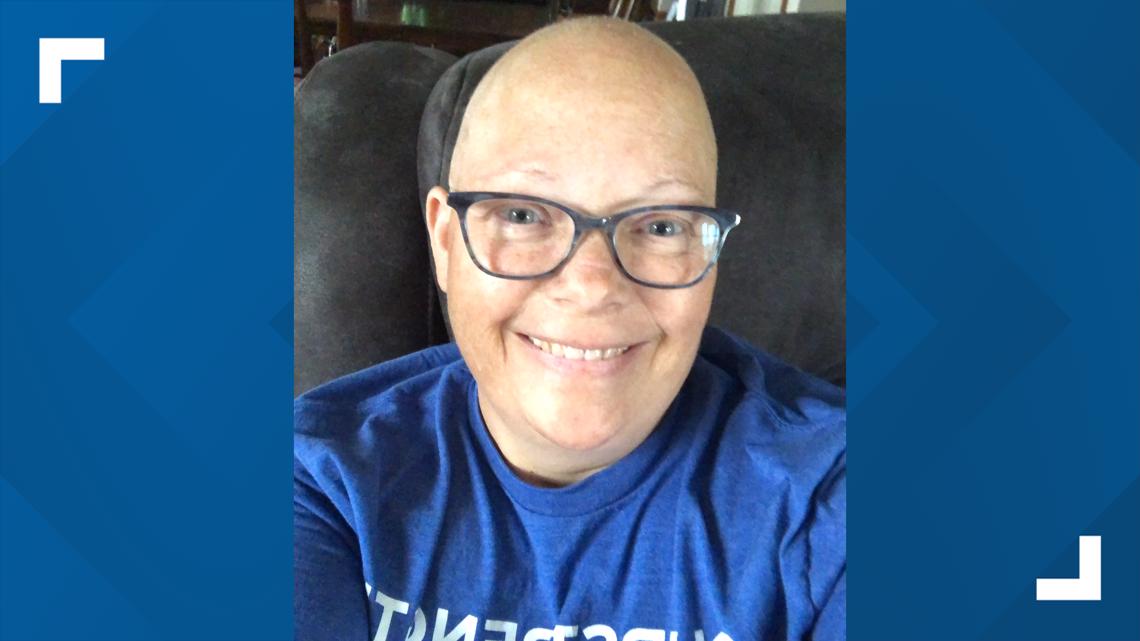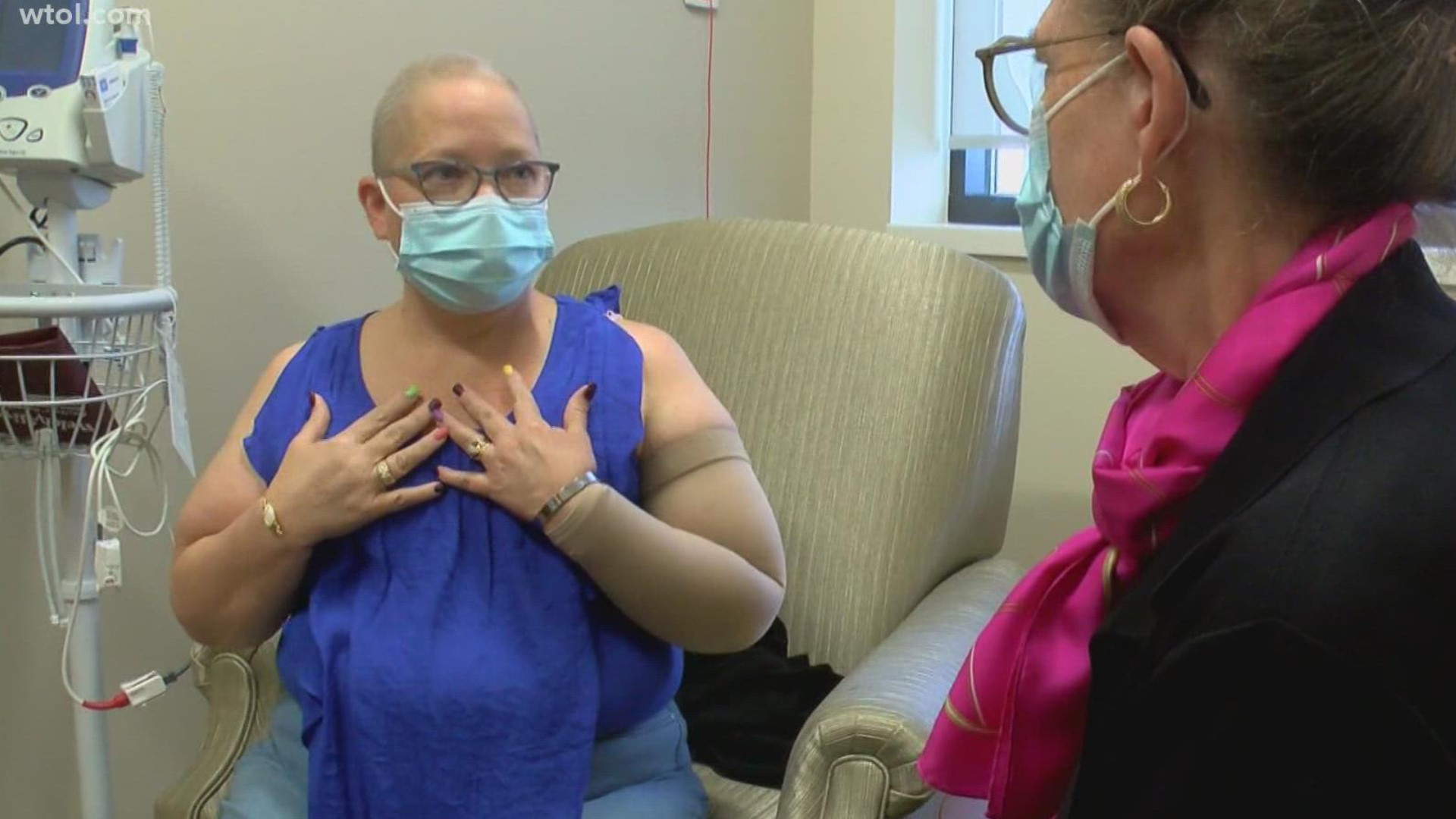TOLEDO, Ohio — The COVID-19 pandemic changed lives in so many ways. It has taken people's jobs, financial security and sense of normalcy.
But it's also taking a toll on our health outside of the virus itself and a WTOL 11 investigation found that you might be at greater risk of getting cancer because of it.
In March 2020, our world changed like never before. The spreading coronavirus shut down so much that people knew and took for granted.
Shutdowns at workplaces, schools and favorite restaurants changed lives.
But they have also taken lives.
A study published in October in the journal "Preventive Medicine" found that in April of 2020, breast cancer screenings funded by the CDC's National Breast and Cervical Cancer Early Detection Program declined by 87%.
And cervical cancer screenings dropped by 84% compared with the previous five years.
"We basically shut down mammography services for several months," said Dr. Constance Cashen, a breast cancer surgeon for Mercy Health.
When the shutdown happened and stay-at-home orders were put in place, doctors' offices shut down and so did important mammography services.
Cashen says mammographies were canceled for a few months last year to keep patients away from the emerging coronavirus and Mercy Health is still trying to catch up.
They are 30% behind where they should be on screenings and are even calling women on the phone who missed their mammograms.
"I have sadly seen us see ladies who were quite advanced and you just worried that had they been identified three or four months earlier. Or they were very fearful and just haven't come for over a year, that now they had disease that had already metastasized," Cashen added.
Dawn McMullen was almost a pandemic statistic.
A nurse in the ICU at Mercy St. Charles Hospital, she got COVID-19 late last year, recovered and then got the COVID-19 vaccine in January.
But then doctors found an enlarged nodule in her lymph system.
"I was having some weird symptoms but they were, to me they were, I was dizzy and I couldn't focus," McMullen said.


Since COVID-19 shots can show inflammation in the lymph nodes, Dawn was told to wait 12 to 16 weeks to have it checked further.
But she had a bad feeling and talked them down to only four weeks.
It was a blessing that she didn’t wait longer.
The nodule had grown significantly in those four weeks and in March, a biopsy confirmed she had breast cancer.
The COVID-19 pandemic almost cost her her life from cancer.
"You know my oncologist said that if I would have waited the extra 12 to 16 weeks, that my actual diagnosis could have very well have been terminal."
But not everyone has been so proactive.
Other cancers could explode because of a sharp drop in screenings.
A recent study in Spain from researchers at the Service of Digestive Diseases, University Clinic Hospital and the Aragon Health Research Institute, found a more than 40% decline in colon cancer diagnoses.
That doesn't mean fewer people are getting colon cancer, but rather a lot fewer people are getting screened and finding it.
They're not getting life-saving colonoscopies.
"I would love to have a day where we don't lose anyone to colon cancer," said Dr. Eilynn Sipe, a ProMedica Physicians colorectal surgeon.
Sipe believes in 10 years, colon cancer could be the number one cause of cancer deaths in 20-to 49-year-olds.
A decrease in colonoscopies could cause dangerous ripple effects.
"We're definitely seeing younger persons affected. And these are persons that are completely surprised by their diagnoses and it has completely affected them in the prime of their life," Sipe said.
That's where you come in.
The recommended age to get your first colonoscopy used to be 50 but it's now 45.
Sipe says whether it's a pandemic or not, don't wait to be screened.
"Even now, every day I see people and they kind of use it as an excuse. They go, 'Well 2020 was a wash' and I go, 'So I will give you a pass on that but we need to keep moving forward.'"


Dawn McMullen now has a great chance to be cured of her breast cancer because she didn’t wait to be screened and didn't let the pandemic control her life.
"I'm just a fighter. I'm a fighter for my patients, I'm a fighter for my family, and actually, this is probably the first time I've fought for me. And I'm winning," McMullen declared proudly.
If breast cancer is found early and is localized to the breast, Cashen said there's a 99% five-year survival rate.
And Sipe says when colorectal cancer is found in stage one, it's over 90% curable.

